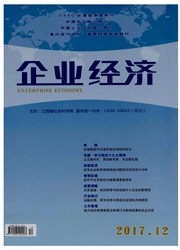

 中文摘要:
中文摘要:
传统电商平台消费者同时面对多种同类商品,而在微商的产品销售中消费者通常只能接触到某一品牌的商品。这两种渠道中消费者所处信息环境的不同,影响着消费者决策时采用的产品评估模式。本研究基于参照依赖理论,采用情景实验的方法,分析消费者通过不同网购渠道购物时评价模式对其品牌敏感及决策的影响。研究发现:感知风险显著影响消费者的品牌敏感;不同评价模式下,消费者的感知风险、品牌敏感以及最终的选择决策都具有显著差别;分离评价模式下不同经验水平的消费者感知风险、品牌敏感及决策均具有明显差异。相对于电商平台,微商由于缺少可供比较的竞品,会导致消费者对品牌更加敏感,这对低知名度品牌较为不利。因此,低知名度品牌更要善于利用电商平台便于产品横向比较的特点弥补自身品牌上的劣势;而高知名度品牌则可以通过利用微商渠道能够避开与低知名度品牌的价格竞争,更好地发挥品牌的优势。
 英文摘要:
英文摘要:
Consumers in traditional electronic business platform face a variety of similar goods, and consumers in the micro-business product sales usually only have access to a brand of goods. Different information environments for consumers in these two channels affect the decision-maklng of consumer products used in the evaluation model. Based on the theory of reference dependence, using the method of scenario experiment, the author analyzes the influence of evaluation model on brand sen- sitivity and decision-making of consumers through different shopping channels. The results show that:perceived risk signif- icantly affect the brand sensitivity of consumers; there are significant differences in consumer perceived risk, brand sensi- tivity and final choice decision under different evaluation models; perceived risk, brand sensitivity and decision-making of different levels of experience are significantly different. Relative to the electronic business platform, the micro-business, due to the lack of competing products, will make consumers more brand-sensitive, which is disadvantageous to less well- known brands. Based on this, the corresponding marketing suggestions are put forward. The less well-known brands should be good at using electronic business platform to facilitate the cross-comparison of products to make up for the disadvan- tages of the brand, even in their own micro-business channel, but well-known brands can avoid the price competition of less well-known brands by using the micro-business channel to better use their brand's strengths.
 同期刊论文项目
同期刊论文项目
 同项目期刊论文
同项目期刊论文
 期刊信息
期刊信息
